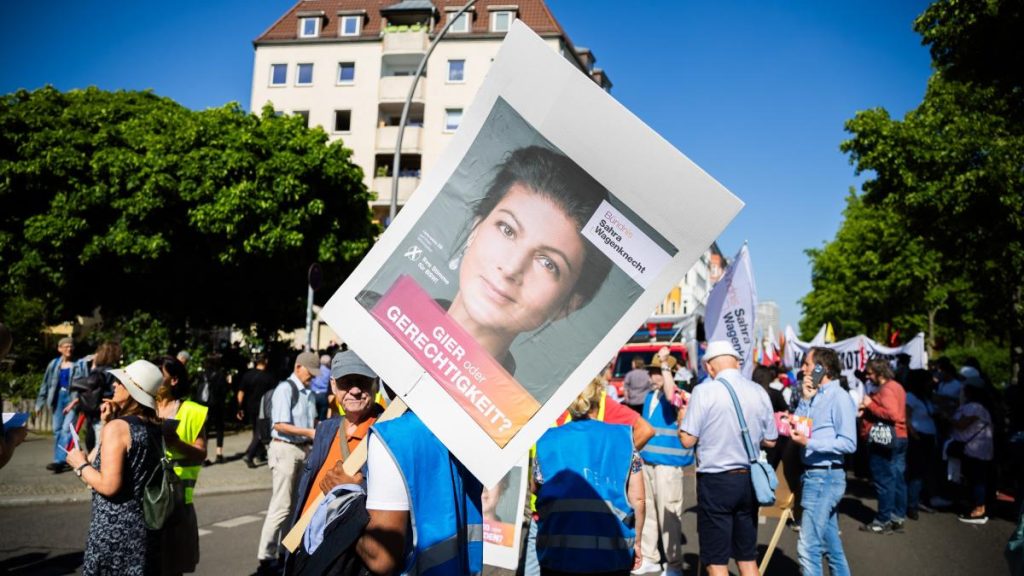Four months before the state election in Thuringia, a poll shows Sahra Wagenknecht’s Alliance (BSW) gaining three percentage points, putting them at 16 percent. The AfD remains the strongest party with 30 percent, despite a slight decrease of one point. The CDU follows with 20 percent and the Left party, led by incumbent Minister-President Bodo Ramelow, also has 16 percent. The SPD has seven percent and the Greens and FDP remain at five and two percent respectively. The FDP could potentially miss out on a seat in the state parliament, while the Greens may also be at risk.
The new poll indicates challenging majority scenarios in Thuringia, where the state election will take place on September 1st, alongside elections in Saxony and three weeks later in Brandenburg. According to the survey, a coalition of CDU, BSW, SPD, and Greens would have a majority with 48 percent. Another potential majority coalition could consist of CDU, BSW, and the Left party, reaching 52 percent. However, this option is seen as unlikely due to the CDU’s refusal to form alliances with the Left or AfD. Incumbent Minister-President Bodo Ramelow is running for reelection and currently leads a minority government with the Left, SPD, and Greens, facing challenges in the parliament where they lack a majority or a solid coalition partner.
The poll was conducted by Insa on behalf of several newspapers in Thuringia, surveying 1000 adults from April 22nd to 29th. The margin of error for the survey is plus/minus three percentage points. The previous survey in March had shown the BSW at 15 percent and the AfD at 29 percent, indicating a slight increase for both parties in the latest poll. The political landscape in Thuringia is complex, with potential coalition options facing various challenges due to the exclusion of certain parties by others. The upcoming election will determine the composition of the state parliament and the future government in Thuringia, with significant implications for the region.
The current government in Thuringia has had to navigate through a challenging political environment, with a minority status and no firm support from other parties. The opposition has at times been able to pass legislation against the government’s wishes, with the assistance of the AfD in critical votes. The potential outcomes of the election in September are uncertain, with several parties vying for power and a need to form viable coalitions for governance. The results of the latest poll suggest a shifting political landscape in Thuringia, with the BSW making significant gains and the AfD experiencing a slight decline, reflecting the ongoing dynamics in the state.
As the election approaches, parties in Thuringia are ramping up their campaigns and strategies to secure votes and potential coalition partnerships. The results of the poll indicate a level of volatility in the political landscape, with potential shifts in power and alliances leading up to the election. The role of smaller parties and the negotiation of coalition agreements will be crucial in determining the future government in Thuringia, as the different parties navigate through complex political dynamics and competing interests. The state election on September 1st will be closely watched, as the outcome will have significant implications for the region and set the course for governance in Thuringia in the coming years.


